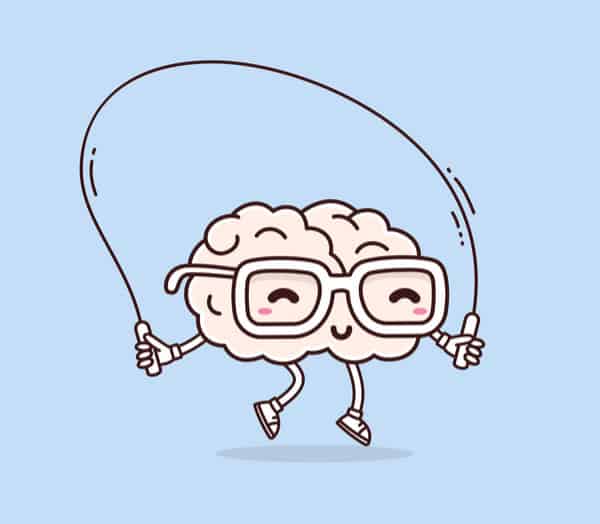Successful aging and dementia. Topics that don’t typically go together, but topics that lots of us are talking about. While the term “anti-aging” may be out of favor these days, the concept of “successful aging” connotes health and youthful vitality. Dementia, on the other hand, connotes loss: short-term memory loss, diminished autonomy, and eventually the loss of what makes you you.
I’ve been wondering lately about what successful aging really means. Does having dementia disqualify you from successful aging? Or can you still age successfully, even if a disease like Alzheimer’s erodes your brain cells? This post summarizes my research and offers a personal reflection on successful aging and dementia.

Successful aging
Doesn’t everyone want to succeed? Why shouldn’t you succeed with aging? Marketers and entrepreneurs are making sure you have a goal to age successfully. And they’re lining up to sell you vitamins, beauty products, bucket list experiences and all kinds of things to help you accomplish this goal.
The ideal is a kind of agelessness. You can be proud of your grey hair, but you can also be “as young as you feel.” You hope you’ll be an octogenarian who can run marathons, ski black diamonds and drink martinis into the night. Should you choose to do those things, of course.
If you’re like me, you’re paying more attention to your health in midlife. Eating healthier, trying to get to bed earlier, renewing a commitment to regular exercise. You wonder what else you can do to age successfully. Like keep up your social relationships, reduce stress, do crossword puzzles, get a dog. You can go crazy trying to do everything that “experts” recommend as keys to successful aging.

Successful aging precludes dementia
You’ve seen parents and loved ones suffering from Alzheimer’s or another form of dementia. You’ve seen firsthand how dementia takes away a person’s memories, the ability to care for herself and eventually the things that make her her. It’s not something you want to happen to you.
But you know, too, that you don’t get to choose. Most of us know someone who experienced dementia despite living a healthy lifestyle. Still, we do our best to avoid this dreaded condition. We cling to hope that we’ll be some of the lucky ones who’ll die with our cognitive facilities still intact.
In this sense, dementia is the opposite of successful aging.
Dementia facts
A traditional perspective is that dementia robs people of any successful aging opportunity they may have had. The biomedical view of dementia is that of an inexorable disease. A disease in which your cognitive function and physical ability decline until you die. A disease whose progression may be slowed, but never cured.
Disease causes dementia
So the good news is that people are becoming more aware that dementia results from disease. It’s not a normal consequence of getting older. Nor is it a kind of moral lapse that you bring on yourself by failing to keep up with details in your life.
Dementia risk factors
At the same time, the biggest risk factor for dementia is increasing age. Your risk of Alzheimer’s doubles every five years after age 65. It’s confusing: as you grow older, you’re more likely to show signs of dementia-causing disease. But not everyone who lives to be very old will incur dementia.
Put another way, age doesn’t cause dementia. But advancing age does correlate with the incidence of dementia.
Moreover, researchers think things like exercise, healthy diet and social interaction might lessen your chances of getting Alzheimer’s or another dementia-causing disease.
Dementia still looks like failed aging
So even though you know disease is what causes dementia, you hope to avoid it. You do what you’ve heard might lower your risk of getting Alzheimer’s. You exercise, eat right, keep up with your friendships. In other words, you try to age successfully.
The net result: although know dementia results from disease, most of us at some level regard it to be a failure of aging.

Changing narrative focuses on successful aging
Societal forces like increasing longevity and the vast cohort of baby boomers (ages 54-73) are changing attitudes about aging. Joann Jenkins, CEO of AARP, heralds these new attitudes. Her book, Disrupt Aging,* offers an optimistic picture of life’s second half. She talks about second careers and well-financed retirements with purpose and meaning.
I agree that attitudes about aging need to change. But most of what has been written so far about the new narrative of old age focuses on people who defy long-held stereotypes. People who are fit, healthy, and well-suited to continue working – even if it’s in a different capacity than they did before.
The new narrative amounts to a portrait of successful aging. It illustrates how people who age successfully continue to contribute to their community well past the years when society expected them to withdraw into “old age.” They may even embark on a new adventure in this next chapter of life.
No place for dementia in the new narrative
The new narrative of old age doesn’t dwell on whether successful aging is possible in the face of dementia. It acknowledges that dementia poses enormous societal challenges going forward. But the focus remains on changing opinions about aging as a time when people become used-up, irrelevant, a drag on society.
The people advocating a new view of old age are right to keep the spotlight on people who’re aging successfully. Their primary goal is to change long-held societal beliefs. They have to keep their message simple and straightforward.
But it means that others will be left to consider how dementia and successful aging can coexist.
Toward a new definition of successful aging
Some scholars suggest that successful aging is a misnomer. A better term, according to those attempting to reconcile successful aging and dementia, would be meaningful aging.
After all, the concept of successful aging connects with a societal dread of growing old. It echoes the idea that youth is good, and age is bad. This traditional perspective is deeply ingrained in our culture. And while baby boomers eschew a traditional concept of aging, most do it by refusing to grow old. It’s the generation who created “the cult of youth,” after all.
As it stands today, the concept of successful aging implies that you maintain a younger biological and psychological age, even as your chronological age continues to advance. But people who study the subject say it’s time for a change.
Erik Erikson and life’s final stage
Meaningful aging, on the other hand, relates to developmental psychologist Erik Erikson’s final life stage, where he juxtaposes “despair” vs. “integrity.”
As an older person reflects on her life experiences, according to Erikson, she can view her life with disgust, focusing on missed opportunities and failures. Or she can accept the bad experiences with the good, forging a sense of peace that leads to wisdom.
In Erikson’s view, confronting physical and cognitive challenges in old age with “integrity” is how you age successfully. Your reward is wisdom.

Aging successfully and dementia: a perspective on disease
Many of us have had the privilege of knowing someone who continued to grow as a person, even as his body gave out. In fact, the end of life can be a time of personal growth for someone with a terminal illness.
Physical disease and increasing wisdom
As interviews with hospice patients demonstrate, the process of facing illness and death can lead to shifting priorities and learning to appreciate life in the moment.
At the end of life, hospice patients say they experience growth in wisdom. Moreover, they talk about wisdom with new-found understanding – citing humility, self-knowledge and learning from others as some of wisdom’s key components.
Translation to cognitive disease
If you can age successfully (or meaningfully) with a physical disease, why not with a cognitive one?
The leading edge of dementia care is in fact oriented toward helping people continue to grow. Called “person-centered care,” it looks for ways to honor individual preferences. Instead of routinely administering medications to control dementia-related behaviors, caregivers try to uncover the roots of such behaviors from an understanding of the person’s past life and preferences.
An eloquent explanation of why and how to replace meds with person-centered care can be found in Joanne Koenig Coste’s book, Learning to Speak Alzheimer’s.* I discuss her philosophy of care in this post.
Aging successfully and dementia: resilience
A key to aging successfully with dementia is developing resilience. At one level, it’s not so different from developing resilience in the face of a terminal diagnosis like cancer. But it’s harder. The cognitive ability you need to put your suffering into perspective is exactly what the disease takes away from you.
One thing that may help is early diagnosis. Some people prefer to deny cognitive issues and refuse to seek medical help early on. But in fact, early diagnosis allows you to make choices about how you want to age while you’re still able to make these choices.
Getting a diagnosis of mild cognitive impairment or early Alzheimer’s, for example, allows you to plan for the future. You can work with loved ones to anticipate future living arrangements and assistance that are consistent with your desires.
You also can use the time to learn everything you can about your disease. How to forestall it, how to deal with its practical aspects. You can join a support group and meet others who help you appreciate that you’re not alone. That you can confront this terrible disease with grace and dignity, even as it’s robbing you of those very same things.
Presence not performance
Citing the work of renowned psychiatrist and gerontologist Gene Cohen, a 2017 article in the Psychiatric Times suggests that even with dementia, wisdom is still present and can be shared. The difference here is that the person with dementia needs others to bring out and engage their personal memories and strengths.
… There can be growth, meaning, and purpose even in the face of adversity in late life. We can extend this philosophy to those with dementia who still retain the capacity to remember the past, engage in pleasurable and meaningful sensorimotor activities, experience humor, joy and mutual interactions, and participate with and give to others. Presence can substitute for performance, and the process of connecting with others can substitute for productivity.

Aging successfully and dementia: a daughter’s reflection
I just came home from celebrating my mother’s 80th birthday. She lives in a residential care facility on the other side of the country. Although she looks fabulous, her short-term memory and ability to manage her own affairs is extremely limited.
On the one hand
From one perspective, you could say she’s not aging successfully at all. She’s confused about why she’s where she is, and she keeps packing her bags to “go home.” She’s forgotten that her doctor wrote the DMV to revoke her driver’s license two years ago.
And yet she remembers we didn’t bring her to our son’s wedding. This fact is particularly painful for me. I wanted her to attend. But we made the difficult choice to exclude her out of concern for her: we worried she would become disoriented and agitated in unfamiliar surroundings. Possibly even set out on her own for “home,” even though it lay two thousand miles away.
Mom texts and emails me on her iPhone multiple times a day. Most of her messages have similar themes: she’s in an Alzheimer’s unit, she doesn’t belong there, she needs to get her car back and drive to her house.
On the other
At the same time, maybe Mom IS aging successfully. She’s in much better shape than her other “inmates,” as she calls them. She operates a smartphone, for goodness’ sake. And yes, she forgets her passwords frequently – but don’t most of us forget from time to time?
Plus, by refusing to acknowledge her cognitive issues, my mother maintains a sense of herself as an attractive, intelligent and articulate woman.
All of which she still is.
Successful aging and dementia: the bottom line
Aging successfully with dementia looks different for different people.
For some people, the path to meaning lies in accepting their diminished cognitive abilities. They stop trying to perform or be productive. Instead they opt to enjoy the present moment.
A spiritual perspective can help both the person with dementia as well as those who love her. As John Dunlop expresses so beautifully in his book, Finding Grace in the Face of Dementia,* there is inherent value in caring for a person who never stops being a person in God’s eyes.
For others like my mom, dementia has no part in successful aging. At least not yet. To age successfully in her assessment, she can’t acknowledge any cognitive limitations.
Mom’s a person of strong religious faith. She could embrace Dunlop’s perspective at some point. The day may come when she stops fighting her disease. But not yet.
So – happy birthday to my mother.
And here’s my salute to successful aging – whatever that means to you.
Images via: Shutterstock, Pixabay
Join my journey through midlife

Subscribe to Jubilant Age and download a free guide to protecting your loved one's money!
Success! Now check your email to confirm your subscription.



